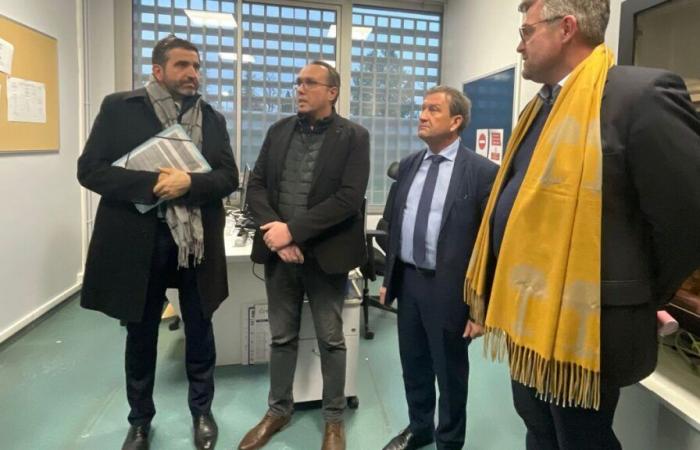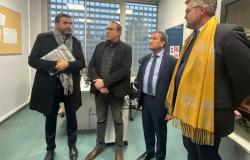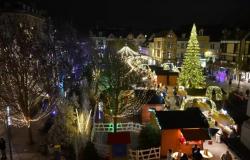
This is a particularity of the Aube department. Like its counterparts, the departmental council does not have jurisdiction over higher education. On the other hand, he is the owner of the walls of the University of Technology of Troyes. The decree creating the UTT dates back to September 1994 but its current buildings were gradually taken over by students between September 1996 and September 1997. In other words, in another era, particularly in terms of energy.
“Time has passed. The construction conditions and energy standards of the time are no longer those of today, underlines Philippe Pichery, the president of the departmental assembly. The energy transition is now at the heart of our concerns. » With the support of communities, the UTT launched a vast energy renovation plan a few years ago.
The first stage was completed in 2021. The UTT buildings were notably connected to the biomass heat network of SEM Energie in Rosières-près-Troyes, a town in the conurbation. This made it possible to replace natural gas and reduce energy carbon emissions by 35%. Another example: at the beginning of 2021, educational buildings switched to LED lighting. Power dropped significantly, from 89.5 to 32 kilowatts. When we take stock, a reduction in electricity consumption linked to lighting of… 66%.
Connected thermostatic taps and window opening contactors
A new phase of work was completed at the end of June 2024, at the initiative of the departmental council, following an energy audit. The latter seized the opportunity of granting a grant to support the investment of departments (DSIS). If the operation carried out cost 1,762,500 euros, the departmental council only paid 512,500. The rest was covered by the State.
Among the actions carried out, the replacement of extractors now equipped with low consumption motors and constant flow regulators, the installation of thermostatic valves connected to the radiators and window opening contactors as well as the installation of new low-consumption LED lighting fixtures with presence detectors and brightness sensors.
Christophe Collet, president of the UTT, insists on “the very concrete actions and the long-term vision” of the establishment he directs in environmental matters. “We are aiming for the ambitious objective of carbon neutrality by 2050, through a significant reduction in our greenhouse gas emissions by 2030.”
The sectorization of the heating system goes in this direction as well as the installation of photovoltaic panels above the reception. Prefect of Aube, Pascal Courtade sees in this energy renovation work, “a reference operation for a reference establishment”. These substantial investments for communities in favor of the establishment go far beyond the framework of the energy transition and are also one of the keys to its attractiveness.
UTT, the latest French university created, is a major player in the local economy with more than 3,100 students welcomed each year, a quarter of whom are foreign students. The economic benefits of UTT on the territory are estimated at 100 million euros per year. Proof that environment and economy can go hand in hand.





